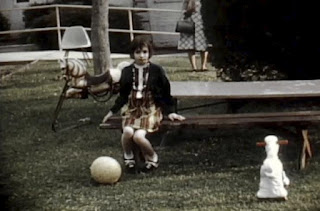Infinite library Or Library of Babel
“The Library of Babel” is a short story written by the Argentine author Jorge Luis Borges. He conceives the idea of an infinite library in this short story.
Just imagine yourself to be in a huge library which has adjacent hexagonal rooms. 4 of the 6 sides will have walls of bookshelves and the other 2 will be open to connect the adjoining rooms. The 4 walls have 5 bookshelves each, with each bookshelf containing 32 books. Each of these books is a 410 page book consisting of a random permutation of the basic characters which includes the alphabet, the period, the comma, and the space.
By creating an infinite library consisting of an infinite number of books that will contain all the possible permutations of the basic characters, Borges has created an universe that contains every possible written work ever, and that which can be written.
Of course, most of books will contain pure gibberish, but amidst the sea of books, you will find the answers to all the questions.
Right from Shakespeare’s Macbeth to George RR Martin’s A Song of Ice and Fire..
Right from the truth about how the Earth was created to the truth about how it’ll end.
Right from the most secret, classified documents to the most sacred, revered scriptures.
Every single work ever written, ever single work that can be ever written and the erroneous versions of these will be present. Even this article of my blog can be found somewhere in the books. Every single question ever asked and the most elaborate answers to them can also be found.
The library is essentially a treasure map. Whatever you wish to find, will be present somewhere in this labyrinth of books, but the probability of finding this treasure that you’re looking for, is extremely bleak.
Not only that, even if you find a page that gives you a coherent passage, the veracity of the content can never be truly determined. This is similar to ‘one time pad’ in cryptography. Let’s say I want to find out the truth about how the Earth was created. I search the library and manage to find a few books with meaningful content. One would say that it was created by God, another would say it was created by the big bang and another might say that it was formed by the accretion from the solar nebula. However, I would never know which one of those is true. I’d just have to be content with the fact that the truth is out there somewhere in the library.
Interestingly, a virtual Library of Babel has been created online. The website Library of Babel holds a digital library containing about 10^4677 books. You can browse through the library by specifying the hexagon number, then choosing the wall, followed by the shelf and then the volume. The site also has a search tool where you can search for a specific 3200 characters, and it’ll return all the locations in the library where that particular text is found. A random page from a random book in the library looks like this:
Pure gibberish, right?
But somewhere, you will definitely find the truth, such as this. You just have to look in the right place.
What’s more interesting is that this library can be reduced further.
Let’s consider that I have two pieces of paper. One paper has a dot written in it and the other has a dash. I’m randomly selecting one of the two papers, alternating between them in a completely random fashion. Essentially, I have been writing a message in Morse code. I just randomly alternate between the dots and dashes for a period of time, and voila! I may have ended up typing Donald Trump’s next tweet! Either a Morse code or a binary code (1 and 0) can be used to completely spell out every truth. The infinite library can be realized as the persistent alteration and repetition of the binary.
So, to think about it, every single work that has been and that can be ever written is just contained in a 1 and a 0.






Comments
Post a Comment